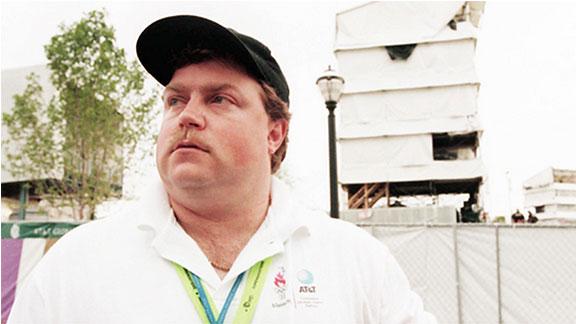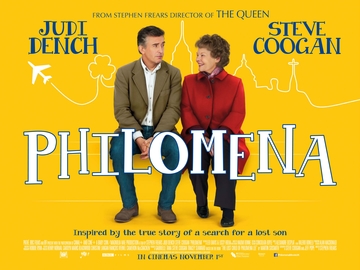 The Oscars are next Sunday so I was scrambling to finish watching all the Best Picture nominees. I finally saw the last movie on my list - Nebraska. Shot in stark black and white and featuring a host of memorable performances, this is another fine family tragicomedy from director Alexander Payne.
The Oscars are next Sunday so I was scrambling to finish watching all the Best Picture nominees. I finally saw the last movie on my list - Nebraska. Shot in stark black and white and featuring a host of memorable performances, this is another fine family tragicomedy from director Alexander Payne.The movie stars Bruce Dern as Woody Grant, an elderly man living in Billings, Montana, who has Alzheimer's and is convinced he has won a $1 million sweepstakes prize when he receives a letter in the mail. He keeps wandering off from his house, determined to walk to Lincoln, Nebraska to claim his prize, and his son, David (Will Forte), has to pick him up from the police station each time. David knows the letter is a scam, but he can't convince his father. He gets no help from his mother, Kate (June Squibb), who is fed up with Woody's fantasies and alcoholism, and his brother, Robb (Bob Odenkirk), who wants to put Woody in a retirement home. But David can't bring himself to dash his father's dreams, so he finally agrees to indulge the old man and drive him to Nebraska.
What follows is a family trip in the tradition of a movie like Little Miss Sunshine or Payne's most recent film, The Descendants. Although David and Woody are the only ones who set off for Lincoln, events lead them to arrange a reunion with Woody's friends and relatives in his hometown of Hawthorne, and Kate and Robb come down to join them. David urges his father not to mention the sweepstakes prize, but word gets out and everyone in Hawthorne is abuzz with the news that Woody Grant is about to become a millionaire. Old enmities and friendships come to light, and as everyone tries to take advantage of Woody, you discover that his wife and sons are still fiercely protective of him. It's a grand story of a family coming together in a very bizarre situation and it is hilarious and moving to watch.
Of particular note is June Squibb's Academy Award-nominated performance. She initially seems like a much put-upon harridan, but as the movie progresses we discover she is a witty, vivacious woman who really does love Woody, despite the many ups and downs in their relationship. Will Forte is calm and understated throughout, turning David into a voice of reason and a reliable rock for the family to lean on. And of course, Bruce Dern is incredible, generating sympathy for a man who initially seems like he doesn't deserve much love. Over the course of the movie we learn about the people and events that turned Woody into the man he is now and it is a spectacular character study. Writer Bob Nelson's script is filled with equal amounts of humor and pathos and it is populated by some of the most nuanced and complicated characters you could hope to meet.
Alexander Payne's use of black and white cinematography is in stark contrast to the lush colorfulness of the Hawaiian landscape in The Descendants. In Nebraska, there's a sameness to all the surroundings, which puts your focus squarely on the characters, whose actions are anything but black and white. You will be exposed to the full spectrum of human emotion during this movie, and it's a journey you won't easily forget.




